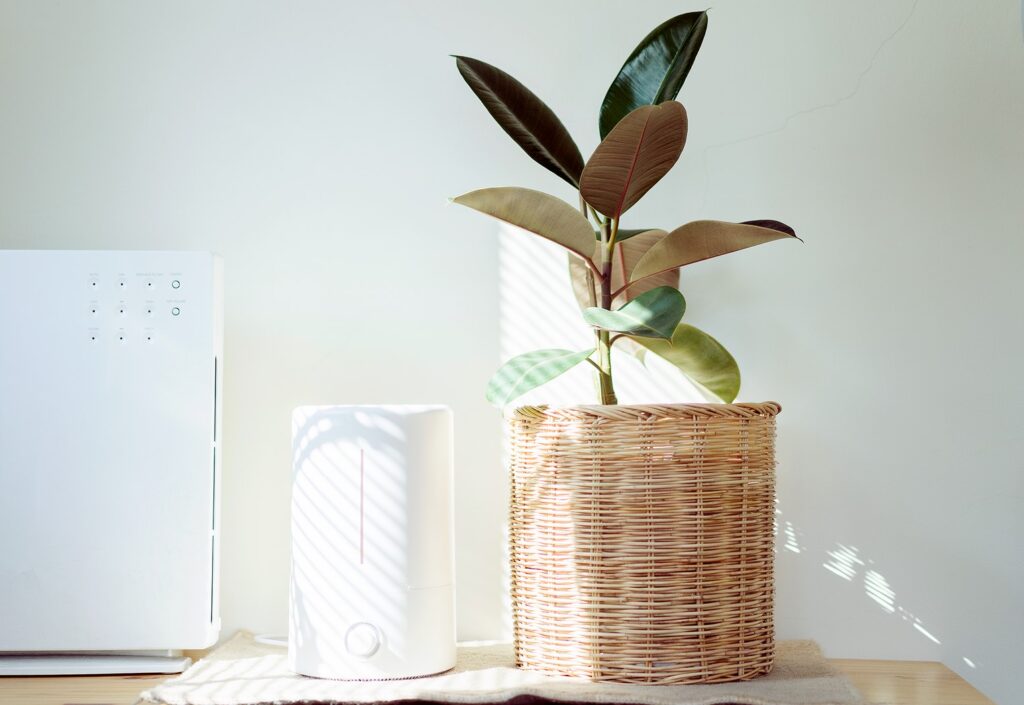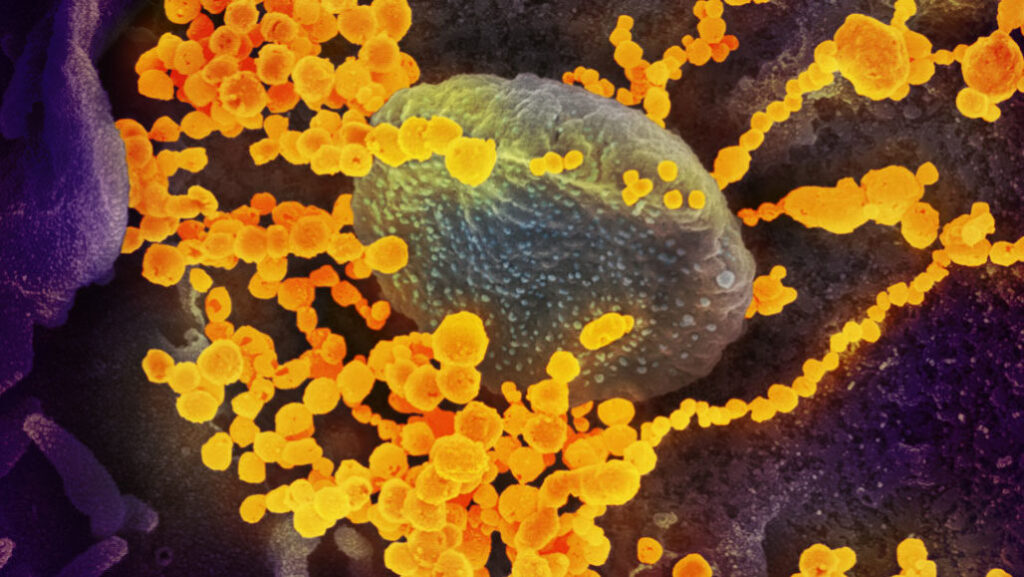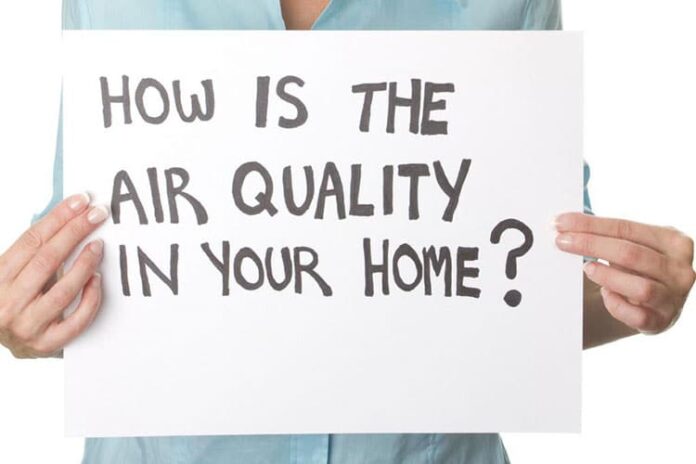With the spread of viruses, such as the novel coronavirus, it’s crucial to always maintain good indoor air quality to keep the air fresh and healthy. The U.S. Environmental Protection Agency (EPA) uses the air quality index or AQI to report air quality, which ranges from 0 to 500. This measurement reflects the air pollution level, and the greater the value of AQI, the greater the air pollution level, which is a greater health concern. Good air quality has a 0 to 50 AQI.
In this post, you’ll learn the good reasons why maintaining good air quality is important in fighting off viruses at home.
Keep Indoor Air At Home Clean And Healthy

Pure Maintenance of Washington agrees that molds, toxins, and other air pollutants greatly affect the quality of air at home. That’s why a proven process should be implemented to eliminate harmful substances or molecules found in the air. Having said that, testing air quality is essential, along with mold testing. Take a closer look at air quality testing, ERMI testing, and tape testing when determining mold and indoor air quality in your lovely home.
- Air Quality Testing: It’s the most common testing method that often requires a 75-liter air sample inside your home, which is pulled via a small filter.
- Tape Testing: It’s good to determine the mold type of visually seen mold growth.
- Environmental Relative Moldiness Index Or ERMI Testing: This testing method is the most expensive but the most accurate test available. Through this, dust and mold are pulled from the carpet using a vacuum and reliable filter system.
Note: Each test is analyzed by an independent third-party lab, and a report is returned to homeowners, which helps in determining the best course of action.
Purified Air Helps Reduce Number Of Air Pollutants

One great home device to use at home to reduce and remove air pollutants is an air purifier. Air purifiers work in many different ways, removing air pollutants, such as pollen, dust, mold, pet dander, pesticides, ragweed, second-hand smoke, and paint fumes, in a room to help improve air quality. Of course, more sophisticated air filters help reduce the number of viruses and bacteria in the air.
Check these important things you need to know about air purifiers:
- Air Purification Methods: Air purifiers clean the air either in an active or passive way. Electronic precipitation or ionization is used by active air purifiers to clean the air, whereas passive purifiers are more efficient because they use filters, trapping and permanently removing particles from the air.
- Best Filtration Method: High-efficiency particulate absorber or HEPA filter is the most effective and common filtration method used, catching particles up to 99.97% and as small as 0.3 microns, including bacteria and viruses. HEPA filters are better as compared to regular air filters.
- Other Air Purification Methods: Other air purifiers use ultraviolet germicidal irradiation or UVGI, activated carbon, photocatalytic oxidation or PCO, polarized-media electronic, immobilized cell technology, titanium dioxide technology, ozone generators, and thermodynamic sterilization or TSS.
Halt The Spread Of Viruses And Other Harmful Microorganisms

Good air quality in your home reduces or halts the spread of the virus, bacteria, and other harmful microorganisms that cause infections. Cleaning and disinfecting your home will help you achieve this goal.
Cleaning and disinfecting surfaces, like cleaning your phone, mailbox, and other common objects used at home, help reduce or kill viruses on surfaces. By doing so, the spread of the virus in the air is also greatly reduced. Just make sure to use accepted cleaning supplies to avoid introducing toxic chemicals inside the home when these cleaning agents are used incorrectly.
Check out these cleaning tips to keep the air in your home clean and avoid the spread of virus and infection:
- Remove drapes, carpets, plush toys, and any objects with a fuzzy surface.
- Minimize dust-gathering clutter and dust frequently.
- Vacuum all carpets and floors using a vacuum with a HEPA filter.
- Every two weeks, vacuum mattresses and use an allergy-proof mattress cover.
- All bedding used should be washed in hot water every week.
- Keep pets out of your bedroom if pet dander starts to bother you.
Good Air Quality For Overall Health Safety

Mold, mold spores, bacteria, and viruses can adversely affect your home’s indoor air quality. Molds at low levels are generally harmless. However, if their number increases, molds and mold spores can affect air quality and cause aggravation of health conditions, most especially people with allergies, suppressed immune system, and respiratory conditions, such as asthma.
Good indoor air quality reduces the risk of your family contracting viruses, such as coronavirus, most especially from asymptomatic individuals. So, apart from practicing social distancing and disinfecting all items used outside before entering the home, improving indoor air quality is also of the essence.
Check out these ways to keep your indoor air quality in tiptop condition for a healthy and safe home:
- Limit wood fires and burning candles in the home.
- Use a small fan and open a window when cooking to move air outdoors.
- Never smoke indoors.
- Never store solvents, glues, pesticides, or chemicals near living quarters.
- Avoid mold growth by running the fan of the AC in the “auto” mode because a fan in continuous “on” operation will raise humidity levels, which usually leads to mold growth.
- Always provide good air ventilation by opening windows in areas with electronic gadgets, such as TV, computer, toaster, and other appliances, because these generate heat and react with plastics and adhesives, releasing toxic chemicals in the air.
- Choose certified low-emitting home cleaners to disinfect your home. You can use non-toxic ingredients, such as vinegar, lemon juice, and hydrogen peroxide. Steam vapor cleaners are also recommended.

Conclusion
Good indoor air quality can combat viruses, bacteria, and other harmful microorganisms and substances present in the air. Through air testing, using an appropriate air purifier, and employing the right cleaning techniques and supplies, you can keep the good air quality in your living space. By keeping contaminants at a controlled and low level, you get to safeguard your and your family’s health.


![Calgary’s Hottest Neighborhoods for Luxury Homebuyers [2024]](https://thewashingtonote.com/wp-content/uploads/2024/04/Calgary-218x150.png)


![Calgary’s Hottest Neighborhoods for Luxury Homebuyers [2024]](https://thewashingtonote.com/wp-content/uploads/2024/04/Calgary-324x160.png)



